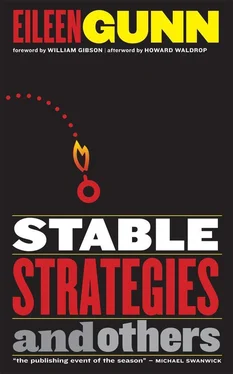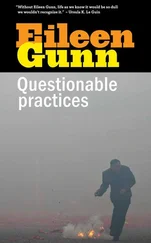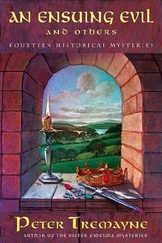A cheap folding frame that held a blurry shot of her father as a child, napping on the lawn in front of an apartment house, paired with a shot of herself in a similar pose. They did look alike, she thought, skinny little kids with cropped, curly dark hair. Funny of him to notice that.
She found a tiny photo, only an inch square, of her father during World War ii. He was a skinny teenager in camo pants and a helmet, striking a pose with a machine gun, and a similar photo of another young guy: on the back it said, “Woody Herald — killed on Guadalcanal.” She’d never heard of Woody Herald, but her father had carried that photo around with him for fifty years.
She sorted books, but she read them too. She was not getting as much done as she wanted. There were so many books that he’d written in, and she was reading them all out of order.
She knew this was so, because he dated his annotations. She could, conceivably, put the books in order, and read her father’s moods and interests as they rolled out before her. Maybe Woody Herald was somewhere in the notes. Maybe she and her mother were in there as well.
She continued to find yellow notes. In the top drawer of his bureau, her father kept old wallets, watches that didn’t work, and cufflinks — a dozen boxes of cufflinks. When do you suppose, she thought, he wore French cuffs? She opened a box at random. There was a yellow note inside: “It used to be that you could tell the age and social position of a man from his cufflinks. Nowdays you have to look at his entire shirt. If he’s wearing one.”
At first annoyed with her father having written in the books, she felt, the more she read, that he was sharing himself in the books in a way he never had in life. Perhaps she should keep them: turned loose into the world — sold or given away — they lost meaning, broke loose from their rightful place. For whom had he written the notes, she wondered. For herself? How would he know she would read them? She found herself putting any book that he’d written in aside, to ship home rather than to sell, even if she wasn’t interested in the book itself.
By the evening of the third day, she was exhausted, with many books still left unsorted. It should have been larger now than the others, but somehow the pile of books to get rid of was the smallest.
The Physics of Time Asymmetry . Keep it or not? She opened the book: it was dense with equations proving that time doesn’t run backwards. Her father couldn’t possibly have understood this, she thought. She put it back in the stack. Why did he own this book? She sank into the easy chair, put her feet up on the footstool, and allowed herself to doze off, just for a bit.
She was awakened by a sound on the other side of the room, a noise at the window. The pane slid open and a small, faun-like child slipped in. She was so much larger than he was that she was more surprised than afraid. Was this who had disturbed her father’s papers? This might have been a neighborhood kid that her father had chatted with, given candy to. The thought bothered her. What kind of a child, so young, would steal from the dead?
The room was lit only by the streetlight outside. He silently moved through the dark, avoiding the places where, she knew, there were boxes of books and piles of trash. He went to the shelf of her father’s work, which she had yet to pack, and picked up a book, opened it, and started leafing through it, turning each page separately. What is he looking for, she wondered. It was too dark to read. She watched him from the shadows, the darkest part of the dark room, as he went through each book in turn, page by page. Finally, she spoke.
“Whatever you’re looking for, it’s not there.”
He turned, his eyes huge and bright even in the dark. She got up from the chair and moved toward him. “What are you doing? How can you see?”
Close-cut, loosely curly dark hair, large dark eyes. He was slight, maybe nine years old, and he looked oddly familiar. Had she seen him lurking about outside?
“Who are you?”
The boy stood motionless, like a mouse or a chipmunk when it knows you’re watching. She moved closer. “Don’t be afraid. What were you looking for?” He didn’t seem to breathe. “Did you take the other books?” Not a sound. His eyes caught light and threw it back.
Was he mute? Could he hear her?
Without warning, he leaped onto her like a monkey, knocking her over, kicking, clawing and biting, grabbing for her eyes. At first she fought just to get him off her, but it was a hard fight. So small a child to fight so fiercely. He pressed down on her windpipe, and suddenly she felt real fear. Summoning a strength she didn’t know she had, she brought her arms up between his and pushed them outward at the elbows, breaking his grip on her throat and shoving him off-balance. She pushed him off her, and knocked him flat, face down to the carpet, then rolled over on top of him. She realized that he had stopped struggling. Wary, she pulled up his head by the hair and realized that it flopped loosely. She had broken his neck. She got up, knelt beside him. He wasn’t just unconscious. He was dead, and he looked smaller than ever.
Is there something you’re supposed to do? She should call the police. She hadn’t meant to kill him. Would they believe her? Why wouldn’t they? She stood up, staggering. How could she undo it? What should she have done differently?
Afraid to turn on the light, she moved cautiously across the dark room to the kitchen. She filled a glass of water from the tap and gulped it down. She stood there for a minute, two minutes. Then she went back into the living room. She would call the police.
She went over to the dead child. In the dark, the body could barely be distinguished from the stacks of books sorted out on the floor. It still looked oddly familiar, like her father as a child, she thought. That photo of him asleep on the lawn.
There was a piece of yellow paper near the child’s head. She picked it up.
“Chekhov wrote, ‘Only fools and charlatans know and understand everything.’”
“Agreed,” she said. “But is it possible to know and understand anything? Is the past always gone? Is it possible to make peace with the dead?”
She knelt down by the body. Did it look like her father? Did it look like herself? There was no answer. There was no body. There were only stacks and stacks of books.
She reached down and picked one up from the pile that had been the child. The Physics of Time Asymmetry . She picked up the pen, opened the book, and wrote on the flyleaf. “For reasons unknown to physics, time runs only in one direction. The mind and the heart, curiously, transcend time.”
AUTHOR’S NOTE:
This story was visited by the ghost of Avram Davidson, who wrote in all his books, annotated his manuscripts, and left little notes here and there for his survivors to find. Avram was supremely confident that his words would be read; perhaps that is the real secret of writing.
I started this story after helping Avram’s son Ethan pack up the contents of Avram’s apartment after his death. I finished it after packing up my own parents’ belongings and memorabilia, after their deaths. It started out a more cheerful story than it ended, but it had become clear to me early on that the number of Post-It Notes you get from dead friends and relatives is limited.
I. We Hear of Her Childhood
Once, some time ago, but not so far back that there is no one who remembers, there was a girl named in her language for a kind of lichen that clings to rocks near the shore. Now in our time, it would be considered odd to name your child after lichen, and perhaps it was so then. But her parents never offered her an explanation, and it’s much too late for one now.
Читать дальше












